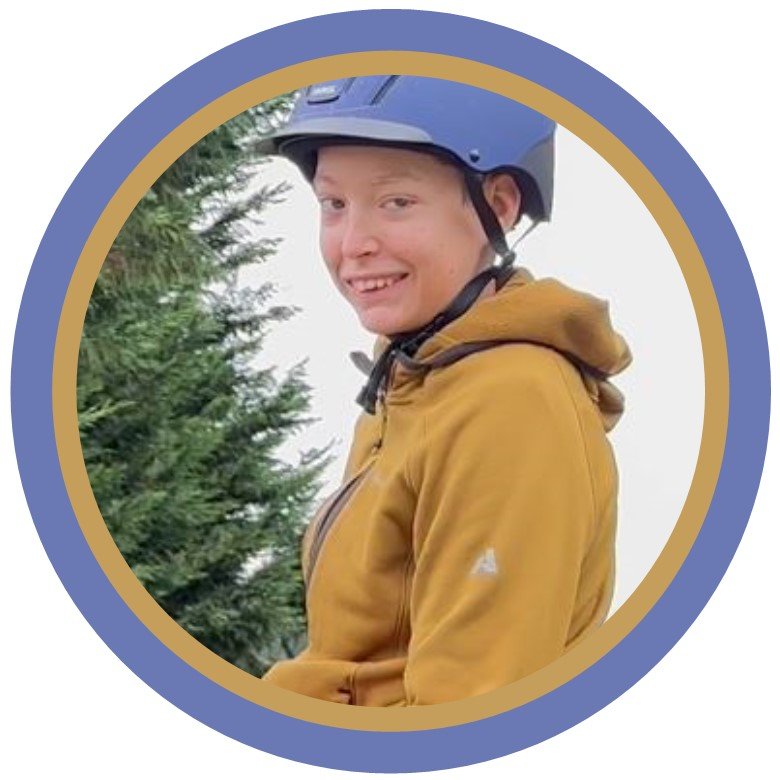New parents have many changes to adjust to, often while sleeping less. Imagine being a new parent whose baby is having seizures, and you have no idea why or how to help them. Exhausted, frustrated, and worried, you eventually learn that your baby, Magnus, has Dravet Syndrome caused by a gene mutation that affects brain cell function.
The seizures could happen anytime, anywhere. Magnus even had a seizure during his first day of preschool. The color red and bright or flashing lights often triggered a seizure, so for many years, visiting Santa was out of the question. His longest seizure lasted two heart-wrenching hours. Now 16 years old, Magnus still requires a nurse to stay with him at school and someone to sleep in the same room with him.
“When something like this happens, you see a lot more kids with disabilities than I had noticed before,” said Magnus’ mom, Mayra.
Their family has endured endless doctor appointments, constant trial and error with medications, diets, and feeding methods—and countless ambulance rides to the ER. Mayra shared, “We live post-traumatic stress every day. Magnus lives on borrowed time.”
“Whatever life he has, I want it to be the best life we can give him,” said Mayra. “Whatever is in our power to keep him mobile, we will do,” she continued.
Magnus has fewer opportunities than a typically developing child. He occasionally loses balance, has challenges paying attention, and is unable to regulate his own body temperature—he doesn’t sweat. Steve and Mayra looked for a program that would help keep Magnus mobile by increasing his balance, strength, endurance, and concentration—without causing him to overheat. They found Little Bit when Magnus was one year old, he started Occupational Therapy at Little Bit when he was two, and 14 years later, Magnus began Adaptive Riding.
When Magnus first began Little Bit therapy treatments with his occupational therapist Sarah, in addition to climbing on and off his horse, sessions included a lot of time climbing on and off the tractor, a unique opportunity found at Little Bit. The tractor motivated him to work on his balance and coordination. While on his horse, a favorite activity was holding a round object and rotating his body while looking in the direction he wanted to go—pretending to steer his horse. Today, in Adaptive Riding with his Instructor Devon, he holds the reins throughout his lesson, learning to actually steer his horse.
“He can’t do jogging or soccer. The horse is a really good form of exercise for him. His core [strength] is better than it would have been. He’s so exhausted afterwards that he almost needs a nap. I never really thought riding horses would be a workout,” said Magnus’ dad, Steve. He continued, “I think Little Bit helps him with his walking and running. If it weren’t for Little Bit, he wouldn’t be doing too much except around the house.”
Today, in Adaptive Riding, he works on his two-point, in other words, briefly raising his body up off the saddle while standing in the stirrups. This is a big challenge for Magnus, and just like his therapy sessions, he fully participates. His class and his horse Molly’s movement were intentionally chosen for Magnus, providing the best opportunities for him to work towards his goals. Some of his goals are interacting with classmates, improving his posture, and increasing his awareness of his body position.
There’s also an emotional side to Magnus’ Little Bit experience. His obvious happiness—the smiles, hugs, fist bumps, and “hi” greetings that Magnus is known for—is a testament to his remarkable resilience. It’s impossible not to smile when you are around him. Steve explains, “Little Bit is good because it’s a controlled, stress-free environment. It’s a home.”
Mayra added, “Magnus feels like he belongs there.”
“If it wasn’t for donors, we could not afford it. We’re lucky that we live here, that Little Bit is close to us, and that we have Little Bit’s commitment to support the community that needs them,” said Mayra.
When asked what they would like you to know about Magnus, Mayra shared, “To see him as the person that he is and that he has so much to give.”
Steve added, “I’d like them to see him as an individual, not his disabilities.”
Thank you to Magnus, Mayra, and Steve for sharing their family’s story with all of us. Thank you to Magnus’ Little Bit Team.
Written by Sharon Soldenwagner










